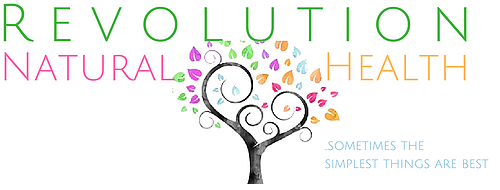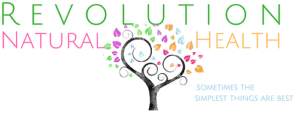The plastic problem has finally reached a crisis point. Experts estimate that between 8-12 million metric tons of plastic makes its way into the world’s oceans every year. To put that into perspective, that is enough to cover every single coast in the world with the equivalent of five grocery bags per foot of coastline. Marine life and seabirds are ingesting deadly plastics while pollution is marring coral reefs and interfering with the ecosystem. Once pristine, protected beaches are now littered with trash and those groups striving to keep the shores clean can’t work fast enough to prevent the mounting catastrophe.
Though many people think that plastic will eventually go away, it actually never fully decomposes. After many years, it simply breaks down into microplastics that are equally, if not more, harmful than the plastic products they came from. These microplastics pick up chemical contamination as they travel. And this contamination, along with the plastics themselves are ingested by fish and other animals. As this contaminated plastic makes its way up the food chain, it eventually comes back to impact humans directly. You could be eating harmful microplastics without even realizing it.
It is easy to look at these statistics and facts and assume that solving this crisis is out of your control. In reality, if everyone were to make an effort to help reduce plastic and manage waste responsibly, the world would be on a course for change. Take charge of your own contribution and make a difference with just a few simple changes.
Reduce your plastic use
When you really start paying attention to how much plastic you use, you’ll be shocked at what you find in your own life. Everything from plastic water bottles to Ziploc bags could eventually end up in the ocean. Stop using disposable plastic wherever possible and switch to reusable water bottles, grocery bags, and glass containers for storage. Find a reusable water bottle with a filter if you are concerned about the toxins and heavy metals in tap water.
Utensils, takeout containers, straws, and plastic cups and lids all contribute to the growing plastic problem as well. Take personal responsibility for your own waste and make small changes that have a big impact. Buy food and personal hygiene products in bulk to limit packaging waste. Bring your own food to work in a reusable container instead of eating out and using plastic silverware and wrapping.
Spread the word
Many people aren’t even aware of the effect that their careless habits have on the ocean and marine life. Take time to (kindly) inform your relatives, friends, and neighbors about the dangers facing the environment.
Don’t litter
Not only is it illegal and inconsiderate, but it is also going directly into the ocean. When you litter on the beach instead of taking your trash with you or finding a trash can, you are directly contributing to the millions of tons of plastic in the ocean. Think about it, the tide comes in and washes away any evidence that you were on the beach that day, taking your empty water bottles, chip bags, and sunscreen bottles with it. But that trash doesn’t just disappear. It goes into the ocean…and stays there.
Recycle anything you can
Though reducing your waste is the best course of change, it can be difficult to eliminate plastic use entirely. When you do use plastic, take the time to clean it and recycle it through the proper channels. Contact your local recycling center to see what kind of plastic they accept and have a recycling bin in your home. This seems like it should be obvious, but only 9% of the recyclable plastic in the world is actually recycled. You can help change that.
Unfortunately, recycling isn’t a long-term solution, either. Since products will usually be recreated into something such as polyester, they will usually begin shedding harmful plastic fibers that can also pollute the environment. Recycling is merely a way to delay the inevitable. The only true way to reduce plastic in the ocean is to limit production and consumption.
Ditch microbeads
Microbeads are a common addition to many personal hygiene products such as body wash, toothpaste, shampoo, and facial scrub. Though they may seem harmless and provide that “exfoliating” effect, these are actually tiny plastic beads. These microbeads travel through the sewer and are often able to slip through water treatment plants due to their minuscule size. Eventually, they make their way into ocean waters and are ingested by animals that think they’re food. Ditch these products and switch to natural exfoliants like salt, coffee, and oatmeal.
Visit the thrift store
Electronics, toys, and other products come with tons of unnecessary plastic packaging. Visit your local thrift store, garage sales, or search online postings for products that can be purchased secondhand. Not only will this help eliminate waste from packaging, but it will give used, unwanted objects a second life and save you a few bucks in the process.
Clean up the beach
If you live near a coastline, take a few hours out of your Saturday and connect with a local group in your area to help clean up the beach. You could even simply grab a few friends, some gloves, and some trash bags and get to work. Not only will this help keep your beaches clean on a local level, but it may inspire others to take action and start their own de-littering campaigns.
Get connected and stay informed
Stay up to date on local, state, and nationwide bans and petitions to implement plastic taxes and ocean protection laws. Get connected where you can and join the community that is fighting back to decrease plastic production and packaging. Contact manufacturers and local governments and support groups that are seeking change.
The plastic problem won’t just disappear overnight. However, change is possible and there is still time to save the ecosystem and halt the pollution crisis in the world’s oceans. Stop waiting for someone else to make a change and do your part to limit your waste today. The fate of the ocean and the future of the earth is at stake.



